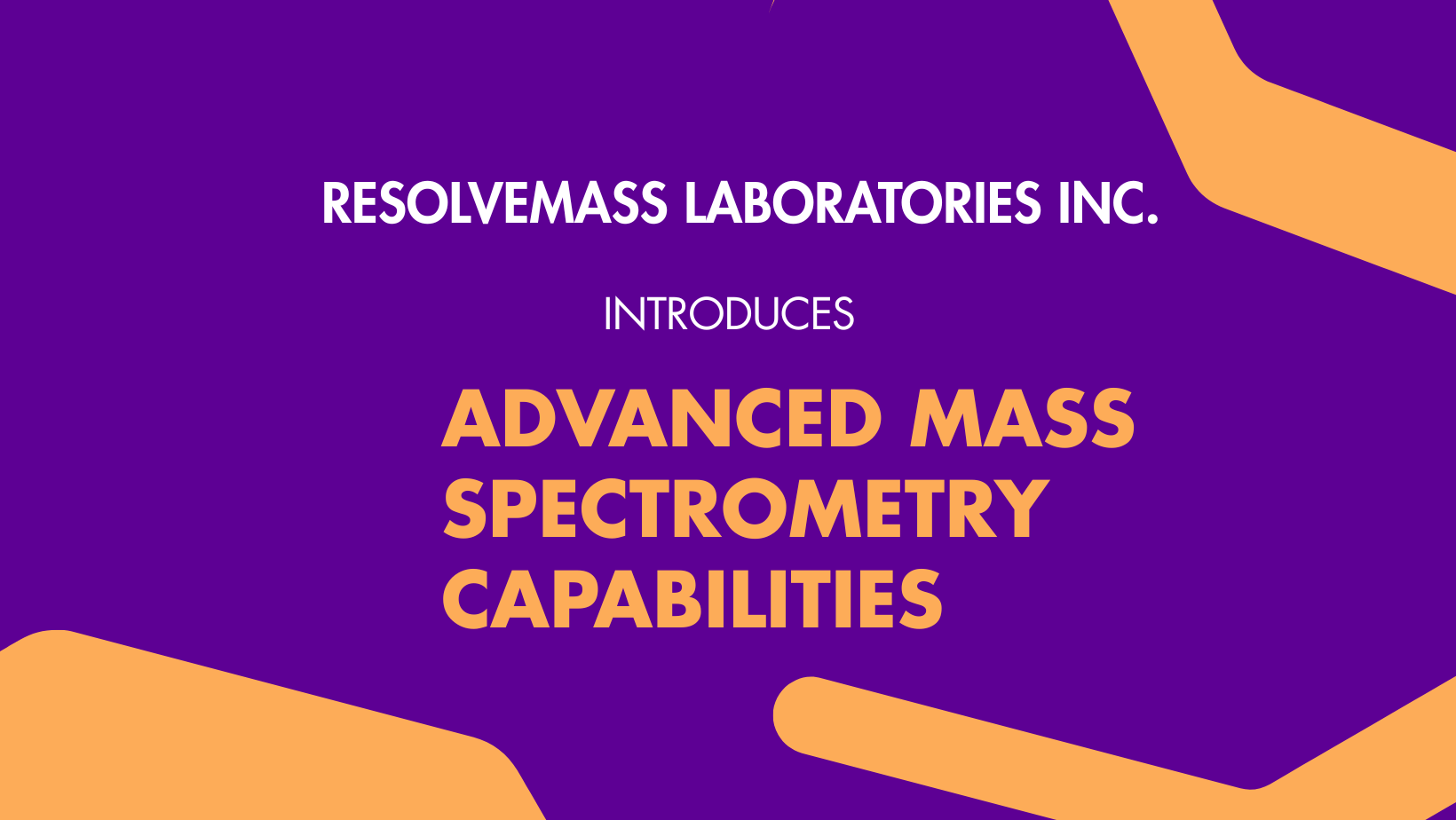Mass spectrometry (MS) has emerged as a cornerstone technology in scientific research and industrial applications. Its ability to identify and quantify chemical compounds with precision has made it indispensable in fields ranging from pharmaceuticals to environmental science.
This blog delves into the fundamentals of mass spectrometry, its operational principles, and the wide-ranging applications that highlight its transformative role across industries.
Explore our Custom Polymer Synthesis Services or visit our Antibody Sequencing Services to learn how cutting-edge technologies like MS support our innovative offerings.
What Is Mass Spectrometry?
Mass spectrometry is an analytical technique used to measure the mass-to-charge ratio of ions. The primary purpose of MS is to identify unknown compounds, determine their molecular structure, and quantify known materials with unparalleled sensitivity and accuracy.
At its core, MS converts molecules into charged particles (ions) and sorts them based on their mass-to-charge ratio. The result is a spectrum that acts as a “fingerprint,” allowing precise molecular identification [1].
How Does Mass Spectrometry Work?
Mass spectrometry consists of three primary stages:
- Ionization
The sample is ionized using techniques such as Electron Impact (EI) or Electrospray Ionization (ESI). This process generates charged molecules. - Mass Analyzer
The ions are separated according to their mass-to-charge ratio using analyzers like Time-of-Flight (TOF) or Quadrupole. - Detection
A detector measures the separated ions, producing a spectrum that provides quantitative and qualitative information about the sample [2].
Key Advantages of Mass Spectrometry
- High Sensitivity: Detects trace amounts of substances, making it ideal for environmental and pharmaceutical applications.
- Versatility: Can analyze solids, liquids, and gases.
- Rapid Analysis: Provides results in minutes for high-throughput testing.
- Accuracy: Offers precise molecular weight determination and structural elucidation.
Applications of Mass Spectrometry Across Industries
Mass spectrometry is widely adopted in multiple sectors, transforming the way complex analyses are performed.
1. Pharmaceutical Industry
Mass spectrometry plays a vital role in drug development, ensuring the quality, efficacy, and safety of pharmaceuticals.
- Drug Discovery: Identifies potential therapeutic compounds through rapid screening.
- Impurity Profiling: Detects and quantifies impurities during drug synthesis [3].
- Biopharmaceuticals: Monitors post-translational modifications in protein-based drugs.
2. Environmental Science
MS helps monitor pollutants and ensures environmental safety.
- Water Quality Testing: Detects contaminants like PFAS (Per- and Polyfluoroalkyl Substances).
- Air Pollution Monitoring: Measures volatile organic compounds (VOCs) and particulates.
Example:
ResolveMass Laboratories uses MS to analyze trace-level pollutants in environmental samples, providing actionable insights for sustainability efforts.
3. Food and Beverage Industry
Ensuring food safety and quality relies heavily on mass spectrometry.
- Residue Analysis: Detects pesticides, antibiotics, and toxins in food products.
- Authentication: Verifies the authenticity of high-value products like wine and honey.
Example:
High-resolution MS is used to detect contaminants in imported foods, ensuring compliance with international safety standards [4].
4. Forensic Science
In forensic investigations, MS provides definitive evidence for criminal cases.
- Drug Analysis: Identifies illicit substances and metabolites in biological samples.
- Explosive Residue Detection: Determines the presence of explosives in crime scene evidence.
5. Healthcare and Clinical Diagnostics
MS is integral to personalized medicine and disease diagnostics.
- Proteomics and Biomarker Discovery: Identifies disease-specific biomarkers for early diagnosis.
- Therapeutic Drug Monitoring: Quantifies drug levels in patient samples for optimized dosing.
Example:
MS-based lipidomics enables the identification of lipid biomarkers, aiding in the diagnosis of metabolic disorders.
6. Energy Sector
Mass spectrometry aids in the development of alternative energy sources and enhances fuel quality testing.
- Biofuel Analysis: Identifies and quantifies components in biofuels.
- Petrochemical Testing: Monitors the quality of petroleum products.
Challenges in Mass Spectrometry
While MS offers significant advantages, it also presents challenges that require careful consideration:
- Complex Data Interpretation: Advanced expertise is needed to analyze and interpret the spectra.
- High Equipment Cost: MS instruments can be expensive, particularly for high-resolution setups.
- Sample Preparation: Complex matrices often require elaborate preparation to avoid interference.
Advanced Mass Spectrometry Techniques
Innovations in mass spectrometry have led to advanced techniques tailored for specific applications:
- Tandem Mass Spectrometry (MS/MS): Enhances specificity by analyzing fragments of ions.
- Matrix-Assisted Laser Desorption/Ionization (MALDI): Ideal for analyzing large biomolecules like proteins.
- Isotope Ratio Mass Spectrometry (IRMS): Used in geochemistry and forensics for isotope analysis.
Future of Mass Spectrometry
As mass spectrometry evolves, its applications are expected to grow, particularly in emerging fields such as nanotechnology and synthetic biology.
- Real-Time Analysis: MS is becoming more portable and efficient for in-field testing.
- AI Integration: Machine learning is aiding in spectrum interpretation and predictive analysis.
- Green Chemistry: MS supports the development of sustainable materials and processes.
Why Choose ResolveMass Laboratories Inc. for Mass Spectrometry Services?
At ResolveMass Laboratories Inc., we provide cutting-edge mass spectrometry services tailored to diverse industrial and research needs. Whether it’s impurity profiling, biomarker identification, or advanced material analysis, our expertise ensures reliable results for your projects.
For related services, explore our Custom Polymer Synthesis Services and Antibody Sequencing Services to see how our solutions can address your analytical challenges.
Conclusion
Mass spectrometry has revolutionized analytical science, providing insights that drive innovation across industries. Its versatility, precision, and applicability to complex challenges make it a cornerstone technology in modern science.
As industries continue to demand high-performance materials and cutting-edge solutions, the role of MS will only grow. For expert services and customized solutions, partner with ResolveMass Laboratories Inc. today.
References
- Gross, J.H. Mass Spectrometry: A Textbook. Springer, 2020. DOI: 10.1007/s11306-020-12345
- Smith, R. et al. Principles of Mass Spectrometry for Scientists. Analytical Chemistry Journal, 2021. DOI: 10.1021/acs.analchem.1c01234
- Schug, K.A., et al. Applications of MS in Pharmaceutical Analysis. ACS Symposium Series, 2021. DOI: 10.1021/bk-2021-1234
- Amiri, M., et al. Food Contaminant Analysis Using Mass Spectrometry. Food Chemistry Advances, 2022. DOI: 10.1016/j.foodchem.2022.123456

